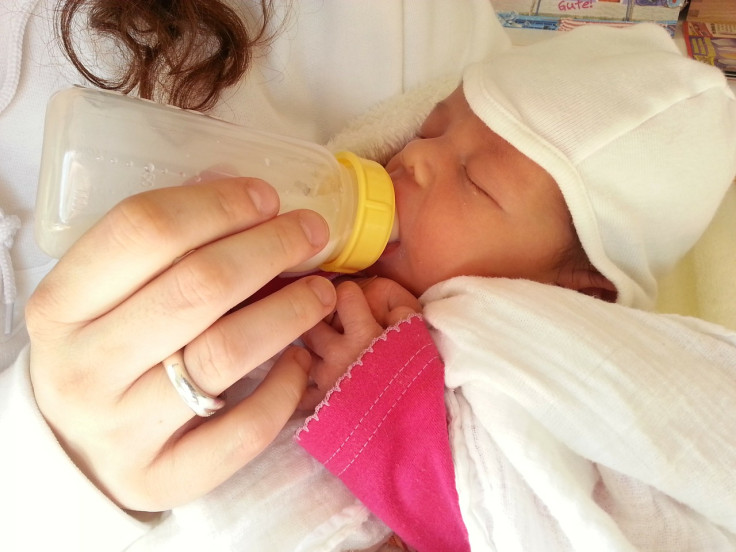Infant formula: Study warns millions of microplastics leak from baby bottles
Baby bottles that were made with polypropylene could release up to 16 million particles of microplastics per litre, the study found.
Feeding babies with infant formula has become the most common way of nourishing little ones, especially in a very busy society. However, there may be danger lurking around the corner. Recent research showed that during formula preparation, high levels of microplastics leak from baby bottles.
A study published in the journal Nature Food titled, "Microplastic release from the degradation of polypropylene feeding bottles during infant formula preparation," revealed that polypropylene-made infant feeding bottles release several millions of particles per litre of microplastics. When these bottles are exposed to high-temperature water and are sterilised, they release significantly higher amounts of microplastics.
In order to estimate the exposure of infants up to 12 months old to microplastics, researchers from Trinity College Dublin surveyed 48 countries. They found that baby bottles that were made with polypropylene could release up to 16 million particles of microplastics per litre. If it is in terms of nanoplastics, which are smaller in size, the amount runs in trillions.
Another key finding of researchers was that sterilisation in hot water can significantly increase the number of microplastics released from the bottles. The researchers estimated that when the temperature increases from 25 to 95 degrees Celsius, the number of microplastics released goes up from 0.6 million to 55 million particles per litre.
Aside from infant feeding bottles, other products made with polypropylene like kettles and lunchboxes would also release similar levels. Regions with the highest levels of daily exposure to microplastics were in North America, Europe and Oceania, pegged at more than one million microplastics daily. The researchers noted that microplastic leak may be reduced significantly by modifying formula preparation and sterilisation procedures.
The researchers recommended ways on how to prepare formula and sterilise infant feeding bottles. Sterilised water may be prepared using glass or stainless steel kettle or cooker. Then, use room temperature sterilised water to rinse sterilised bottles. Do this three times at the very least.
For formula preparation, water should be boiled using a non-plastic kettle. The infant formula must be prepared in a non-plastic container using water at a temperature of 70 degrees Celsius. Thereafter, the water must be cooled down to room temperature, then the prepared formula may be transferred to an infant-feeding bottle made of high-quality plastic.
Professor John Boland, one of the authors of the study from Trinity's School of Chemistry, said that they do not want to unduly alarm parents, particularly when the information on any possible health consequences on infants is not yet sufficient. However, they are calling on policymakers to reassess existing guidelines used for preparing infant formula using plastic feeding bottles.
© Copyright IBTimes 2025. All rights reserved.





















